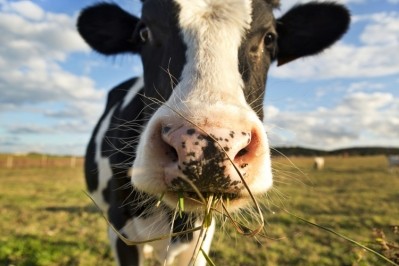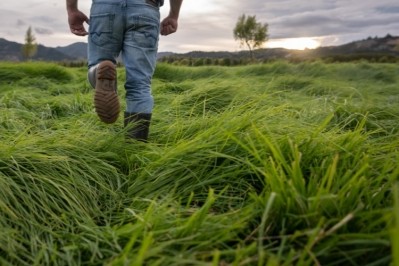Dairy farmer handed $19K bill over ‘polluting dam of manure’

A 74-year old mixed farmer from England’s South West has been ordered to pay total costs of £15,388.40 (around $19,300) plus a surcharge of £114 ($143) and complete 60 hours of unpaid community work after an illegal slurry ‘dam’ he built collapsed, causing widespread contamination.
The case was brought by the Environment Agency, which were first called to reports of pollution of the River Isle tributary in Devon in January 2023. The pollution was traced back to a slurry store made from farmyard manure that had collapsed, resulting in the entire store contents pouring out.
20-metre ‘slurry track’ and water contamination
Environment officers found that the slurry had flowed 400 meters (around 435 yards) from the store location into two nearby fields and downhill into a wooded area, leaving in places a 20 meter-wide ‘track’ and a 12-inch deep ‘tidewave’.
The pollution in the woodland was so significant that it contaminated springs supplying drinking water to several properties on a nearby estate, leaving residents’ drinking water contaminated with E.coli.
In a court hearing on May 10 in the Exeter Magistrates Court, farmer Derek Dyer of Crawley Farm near Honiton pleaded guilty to one charge of causing pollution and two charges related to building an illegal slurry store.
He admitted that he and his son had used the field for the store because they didn’t have sufficient slurry storage, and an application for a new store had been delayed by the local planning authority. Dyer had thought the structure would hold up until the slurry could be spread, but claimed that heavy rainfall had caused the collapse.
District judge Smith described the act as reckless and said that the farmer should have known better given his experience, with the family having farmed in the area for four generations.
“In over 30 years of regulating farms, I have never seen such extensive contamination by slurry,” said senior environment officer Dave Womack.
“Mr Dyer showed a flagrant disregard of the law. Regulations which prescribe how to construct slurry stores have been in place since 1991 and all farmers need to follow some basic requirements to prevent catastrophic events like this from happening.”
Dairy farming's troubled reputation
The court case has served a reminder of British's dairy's less than stellar track record with water stewardship in recent years. A freedom of information request lodged by campaigners River Action revealed that almost 7 in 10 England-based dairy farms (69%) that were inspected by the Environment Agency between 2020 and 2021 breached environmental regulations. The Agency also told the campaigners that dairy farming had been the largest single cause of agricultural pollution, accounting for the majority of all serious pollution incidents caused by agriculture. The majority of these incidents are linked to slurry mishandling, according to the report.
However, the National Farmers’ Union (NFU), which represents the agriculture and horticulture sectors in England and Wales, responded that water quality issues ‘are often complex and we cannot simply conflate statistics on dairy farm businesses with river pollution, as each river catchment is different’.
Paul Tompkins, chair of the NFU dairy board, said: “The industry will continue its huge efforts to improve water quality through a range of best practice measures such as careful management and storage of fertiliser and manure.
“However, the ability to invest in on-farm infrastructure to reduce pollution incidences is also key. Greater access to government schemes such as the Slurry Infrastructure Grant and a reduction in planning restrictions on farm are both vital to enable dairy producers to invest in slurry storage improvements and infrastructure to further protect watercourses.
“We know more can be done on farms to improve water quality and dairy farmers across the country are committed to continuing to work with government and regulatory bodies such as the Environment Agency to drive improvements and play their part in protecting the health of the nation’s rivers.”
How should slurry stores be built in the UK?
In the UK, building a new slurry store may require a full planning permission and development rights from the relevant authorities. Even if these permissions are not required for a particular site, the local planning authority must be informed of the construction and size of the storage.
In England, the Environment Agency must also be notified at least 14 days before a new store is built or modified.
There are also requirements in choosing the right location for a slurry store. For example, it must be placed at a safe distance from inland or coastal waters as well as land drains and not be built in areas that are at a risk of flooding.
It also can’t be within 50 meters of wells or springs that are used for food production or drinking water, and there are additional rules if the location is near conservation or other protected areas.














